So, you’re thinking about getting a dog. You’ve looked at the cute photos online and maybe even visited a few adoption centers. While dogs bring joy and companionship, it’s crucial to know that some breeds come with a bit more baggage than others. These breeds may be high-maintenance in ways you didn’t expect, from grooming needs to exercise requirements. Here’s a look at 14 dog breeds that are secretly high-maintenance, so you can be better prepared for what’s ahead.
1. Afghan Hound
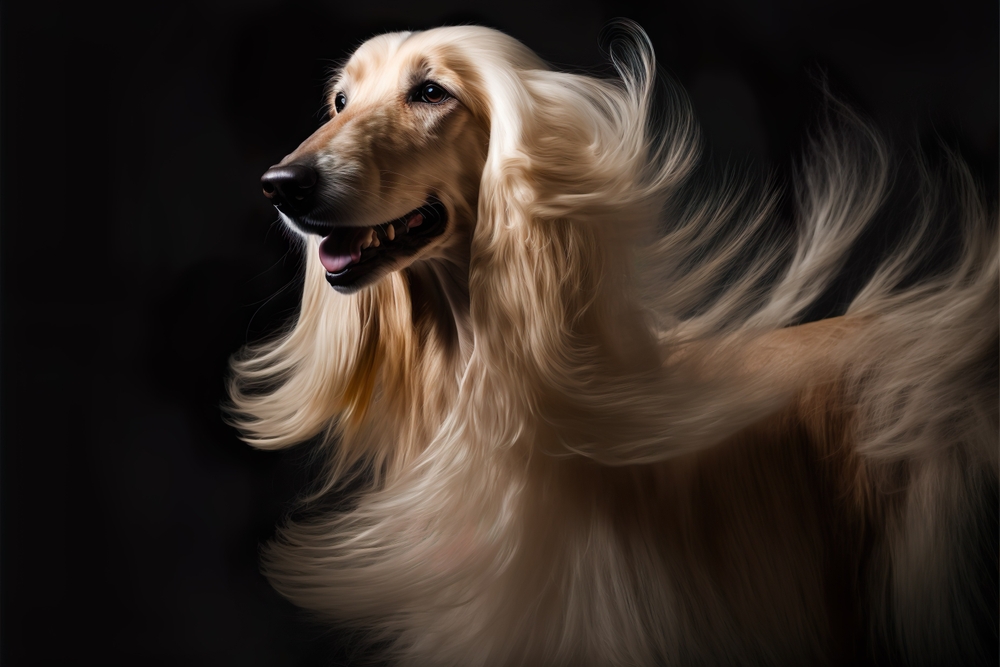
The Afghan Hound is a showstopper with its long, silky coat and regal appearance. However, all that beauty comes at a cost. This breed requires frequent grooming—think daily brushing sessions and regular trips to the groomer. According to Dr. Sarah Evans, a veterinarian with a focus on canine dermatology, Afghan Hounds are prone to skin issues if their grooming needs aren’t adequately met. If you’re not prepared to spend time and money on their upkeep, this breed might not be for you.
Beyond grooming, Afghan Hounds are known for their independent nature, which can be challenging for first-time dog owners. They have a strong prey drive, so a secure yard or a reliable leash is a must. Be ready for some patience-testing moments during training, as these dogs often act on their own terms. Socialization is also crucial for this breed to keep them from becoming overly reserved or timid. If you’re willing to put in the work, they can make loyal, albeit demanding, companions.
2. Border Collie
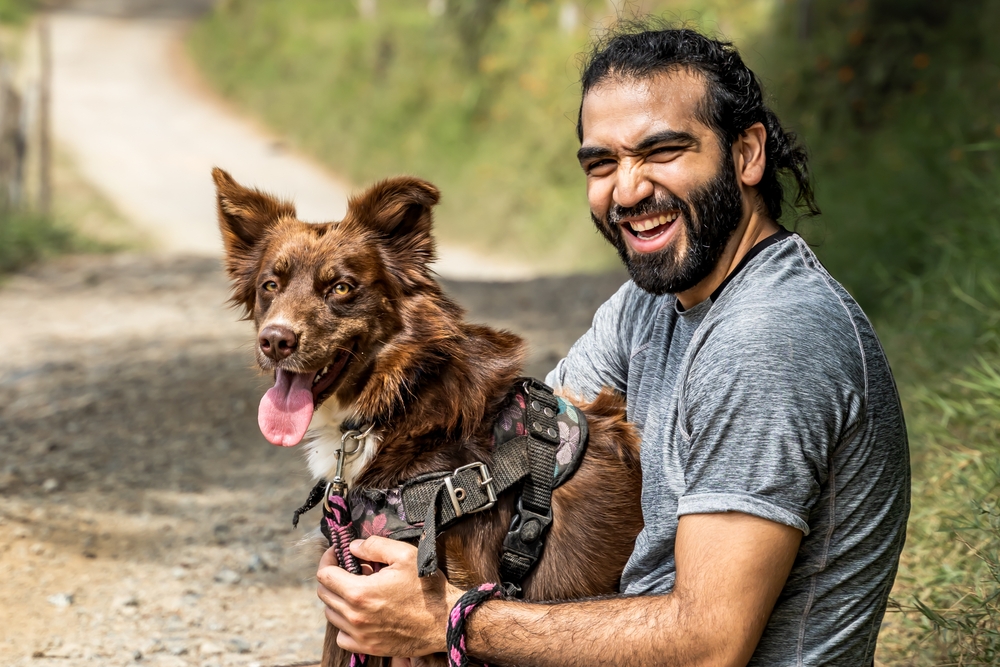
Border Collies are often celebrated for their intelligence and agility, but this brainpower means they need constant mental stimulation. They’re not the type to lounge around the house all day. If you don’t provide them with tasks to do, they’ll find their own, usually involving some form of mischief. Expect to spend a significant amount of time exercising them, whether through long walks, runs, or agility training. Without this, a Border Collie can become bored and even destructive.
These dogs thrive in environments where they have a job, so they’re perfect for owners who can commit to training and mental challenges. While they are generally friendly, socialization is key to preventing them from becoming overly protective or wary of strangers. They also shed a lot and require regular grooming to keep their coat in good condition. Think of a Border Collie as a full-time job rather than just a pet, as their needs extend well beyond the basics. If you’re up for the challenge, they can be incredibly rewarding companions.
3. Poodle
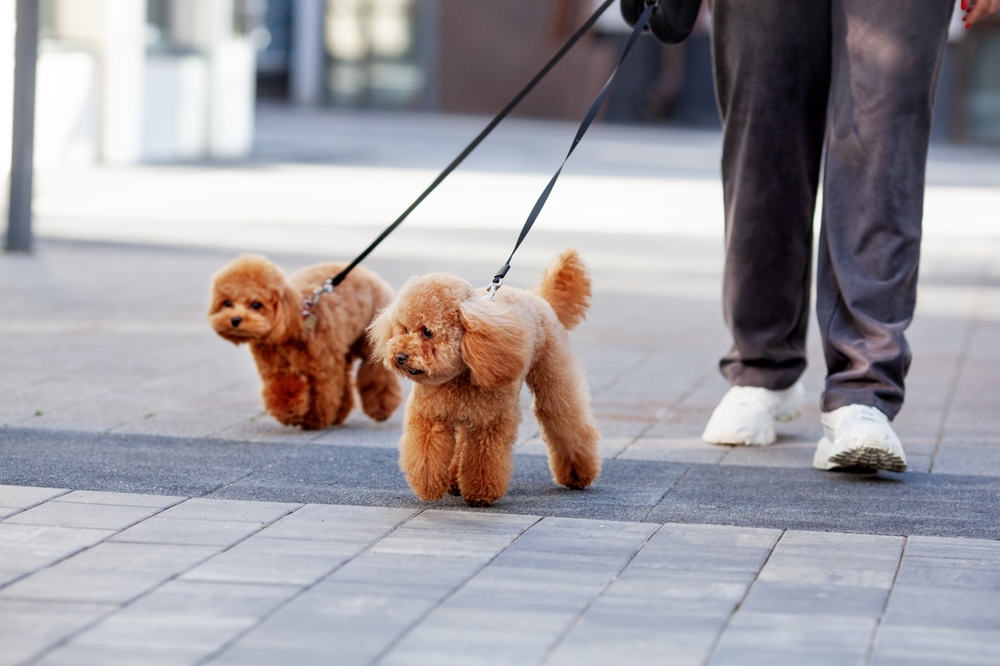
Poodles are often thought of as low-maintenance due to their hypoallergenic coats. However, maintaining that coat is anything but simple. They require regular grooming to keep their curls free from mats and tangles. According to dog grooming expert Melissa Verplank, Poodles should be groomed every three to six weeks, depending on the length of their coat. This means more time and money spent at the groomer’s than you might have initially thought.
Beyond grooming, Poodles thrive on mental stimulation and physical activity. They excel in obedience training but require consistent challenges to keep their minds engaged. They may develop behavioral issues if they don’t get enough exercise or mental stimulation. Their intelligence also means they can quickly become bored, so rotating toys and activities is a must. If you’re willing to invest the effort, a Poodle can be a highly trainable and affectionate pet.
4. Siberian Husky
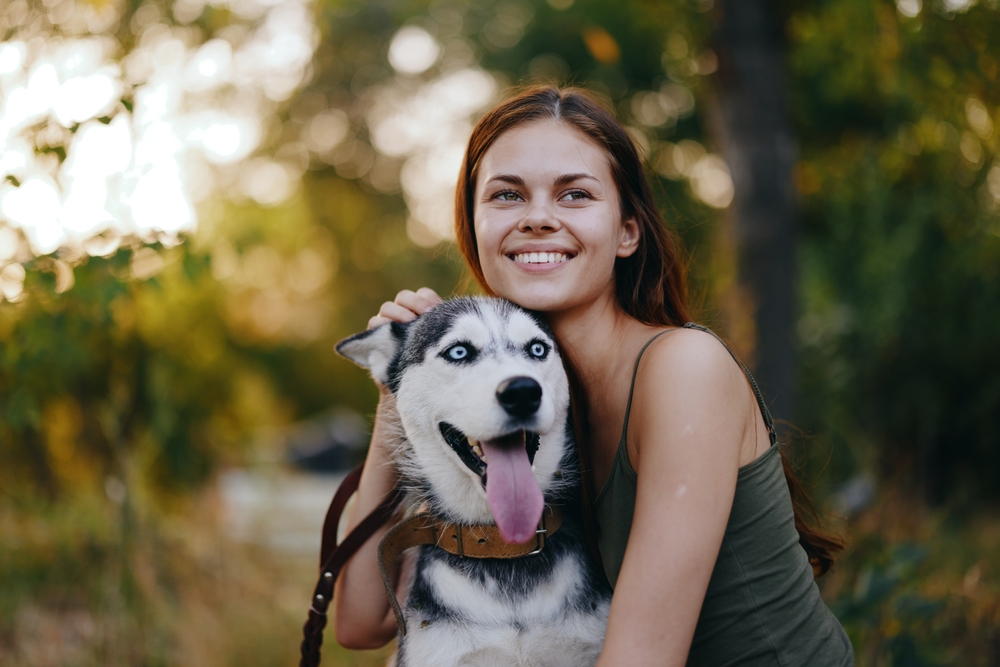
Siberian Huskies are known for their striking looks and high energy levels. Their thick coats, designed for cold climates, require a lot of upkeep. Regular brushing is crucial to manage shedding, especially during seasonal changes. While their grooming needs are significant, the real challenge with Huskies is meeting their exercise requirements. Without enough physical activity, they can become frustrated and even destructive.
These dogs have a strong prey drive, so recall training is essential if you plan to let them off-leash. They’re social animals and do best with companionship, either from you or another dog. Huskies are also known for being escape artists, so a secure yard is vital. The breed can be vocal, which is charming to some but annoying to others. If you can meet their high energy needs, they can be loyal and entertaining companions.
5. Dalmatian
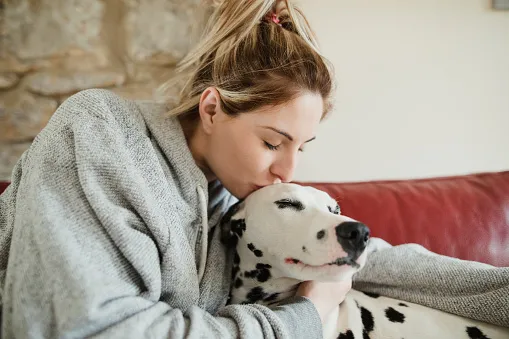
Dalmatians are famous for their unique spots and lively personalities, but they can be a handful. This breed is known for its high energy levels and needs a lot of exercise to stay happy. According to Dr. Jane Parker, a canine behavior specialist, Dalmatians can become anxious or even aggressive if they don’t get enough physical activity. They require consistent mental stimulation, such as training or interactive toys, to stay well-adjusted. Owning a Dalmatian means committing to a lifestyle that includes plenty of outdoor time.
Beyond exercise, Dalmatians have specific dietary needs due to their tendency to form urinary stones. They require a diet low in purines, which means premium dog food or even a custom diet. Grooming is relatively easy, but they do shed more than you might expect. Socialization from a young age is crucial to manage their energetic and sometimes stubborn nature. If you’re an active person ready for the challenge, a Dalmatian can be a playful and loyal partner.
6. Great Dane
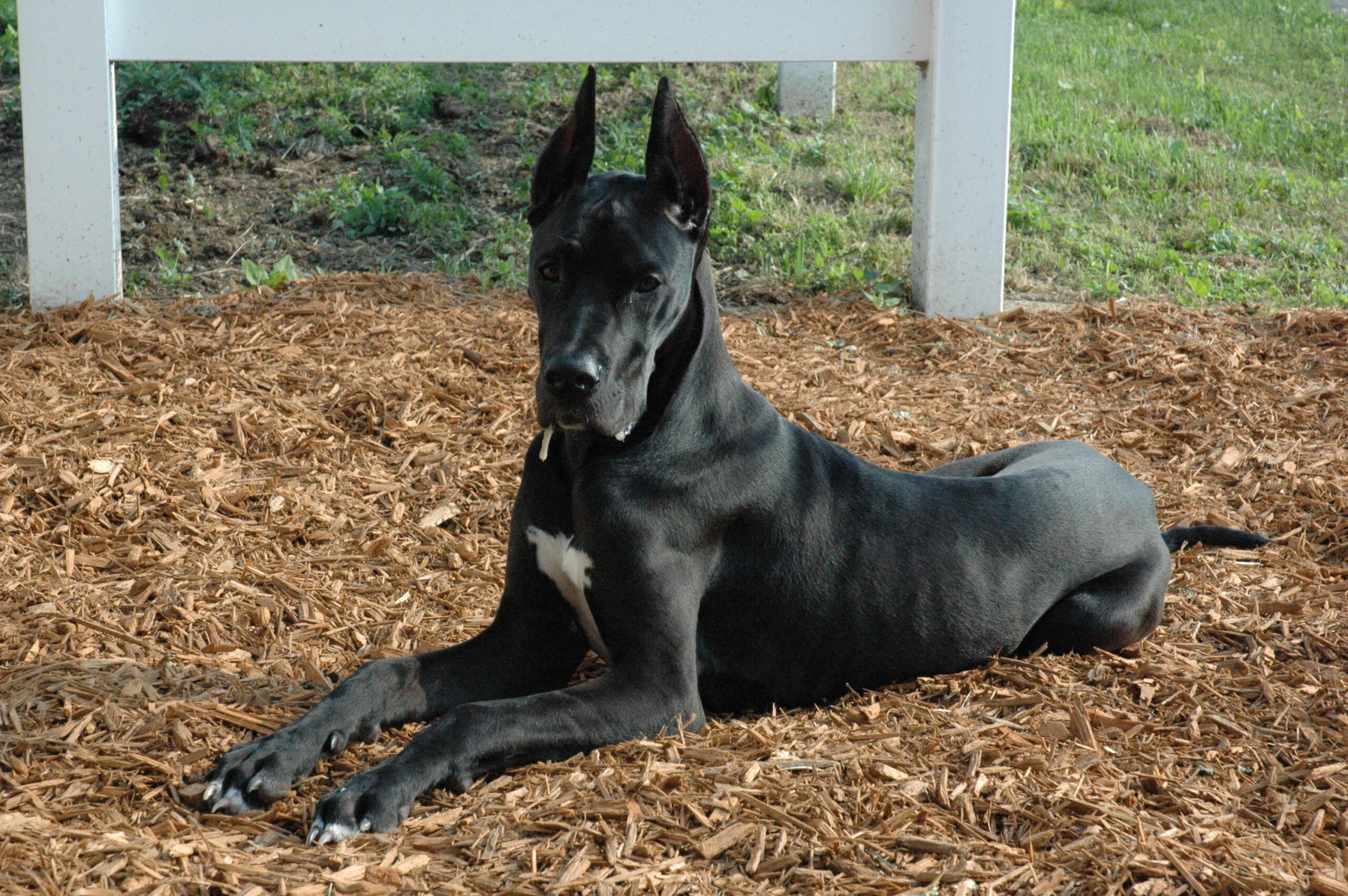
Great Danes are gentle giants, known for their size and affectionate nature. But don’t let their mellow demeanor fool you; they come with their own set of challenges. First, there’s the space issue: these dogs need plenty of room to move around comfortably. Their size also means they can inadvertently knock things over or take up more space than you’d expect. Owning a Great Dane isn’t just a commitment to the dog, but also to having a home that can accommodate their needs.
Their size also comes with health concerns, such as hip dysplasia and bloat, which require regular veterinary care. Feeding them isn’t cheap either, as their large size means they consume more food than the average dog. Exercise is still important, but their joints are prone to injury, so activities must be carefully chosen. Training is essential to manage their size and strength, especially around children and smaller animals. If you can meet these needs, a Great Dane can provide years of loyal companionship.
7. Jack Russell Terrier
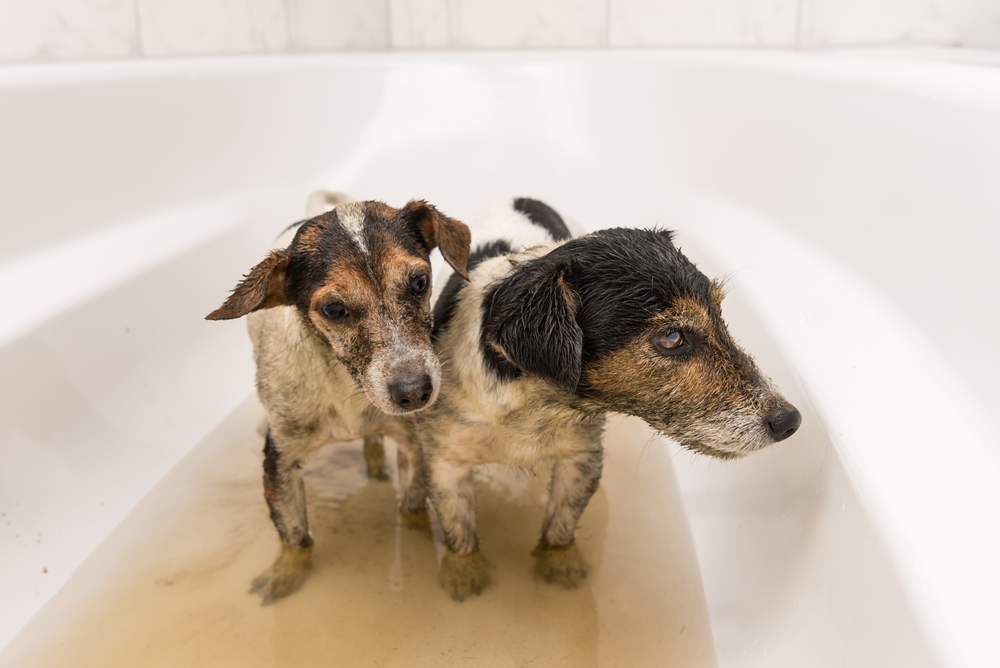
Jack Russell Terriers are small in size but big in personality, known for their boundless energy and intelligence. However, this energy can be a double-edged sword. Dr. Emily Thompson, a veterinarian specializing in small breeds, notes that Jack Russells require more exercise and mental stimulation than most other small dogs. Without adequate attention, they can become highly destructive, taking out their frustration on your belongings. They’re not the type of dog to be left alone for long periods.
Training a Jack Russell can be a test of patience, as their intelligence often means they’ll push boundaries. Consistency is crucial, and early socialization is key to preventing them from becoming overly protective or aggressive. They also shed frequently, so regular grooming is necessary to keep their coat healthy. Their hunting instincts can make them prone to chasing smaller animals, so a secure yard is essential. If you’re prepared for their high-energy lifestyle, they can be incredibly loving and entertaining pets.
8. Chow Chow
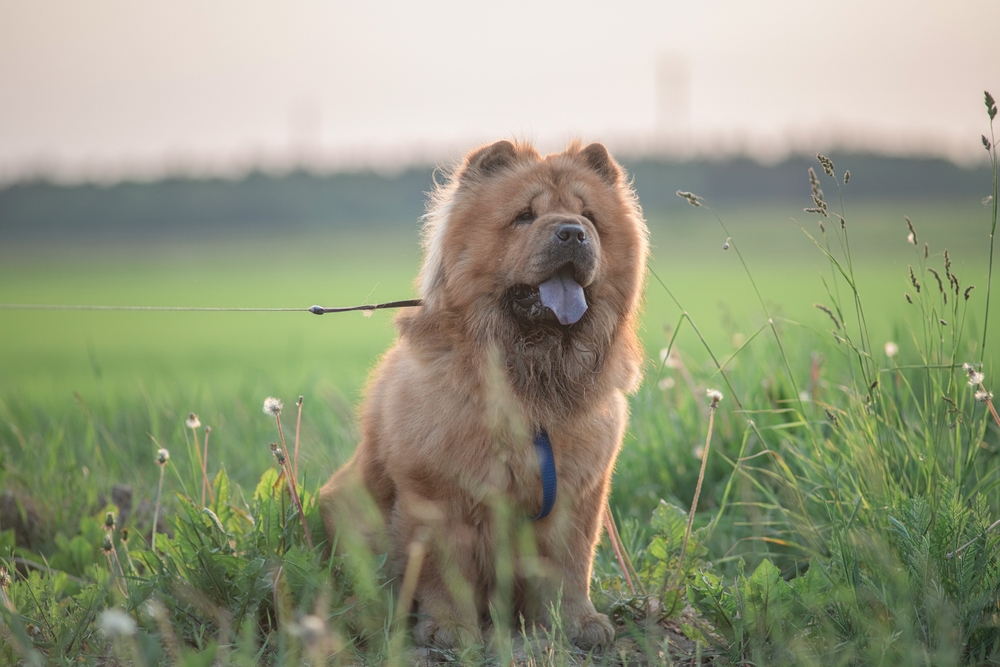
Chow Chows are known for their lion-like appearance and aloof demeanor. While they might look like low-key companions who enjoy lounging around, they are anything but low-maintenance. Their thick double coat requires regular grooming to prevent mats and tangles. Seasonal shedding can be intense, demanding even more attention to their grooming needs. If you neglect their coat, you could face a grooming nightmare.
Socialization should start early for Chow Chows, as they can be reserved or even aggressive if not properly introduced to different environments and people. They are independent and can be difficult to train, often requiring a firm and consistent approach. While they don’t require as much exercise as some high-energy breeds, they still need daily walks to stay healthy. They can be territorial and protective, so training is essential to manage these instincts. If you’re prepared to invest the time in grooming and training, a Chow Chow can be a loyal but selective companion.
9. Bulldog
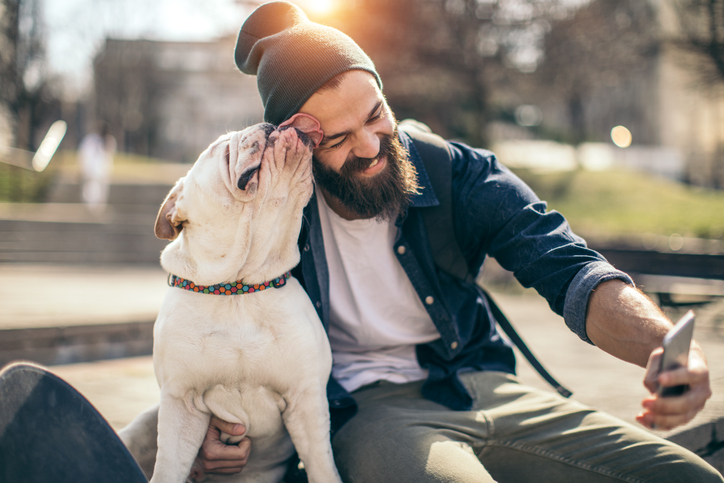
Bulldogs are often seen as the lazy couch potatoes of the dog world, but don’t be fooled. Their unique physique comes with a host of health issues, making them one of the more high-maintenance breeds. They are prone to breathing problems, skin issues, and joint troubles that require regular vet visits. While they don’t need a lot of exercise, they do need controlled activities to maintain a healthy weight. Owning a Bulldog means committing to regular veterinary care, which can add up in costs.
Their grooming needs aren’t extensive, but their skin folds require regular cleaning to prevent infections. Bulldogs can be stubborn, which means training requires patience and consistency. They are social animals and thrive on human interaction, so they don’t do well when left alone for long periods. Due to their health issues, Bulldogs are not suited for extreme temperatures and need a climate-controlled environment. If you’re ready for the challenges, Bulldogs can be affectionate and loyal companions.
10. Akita
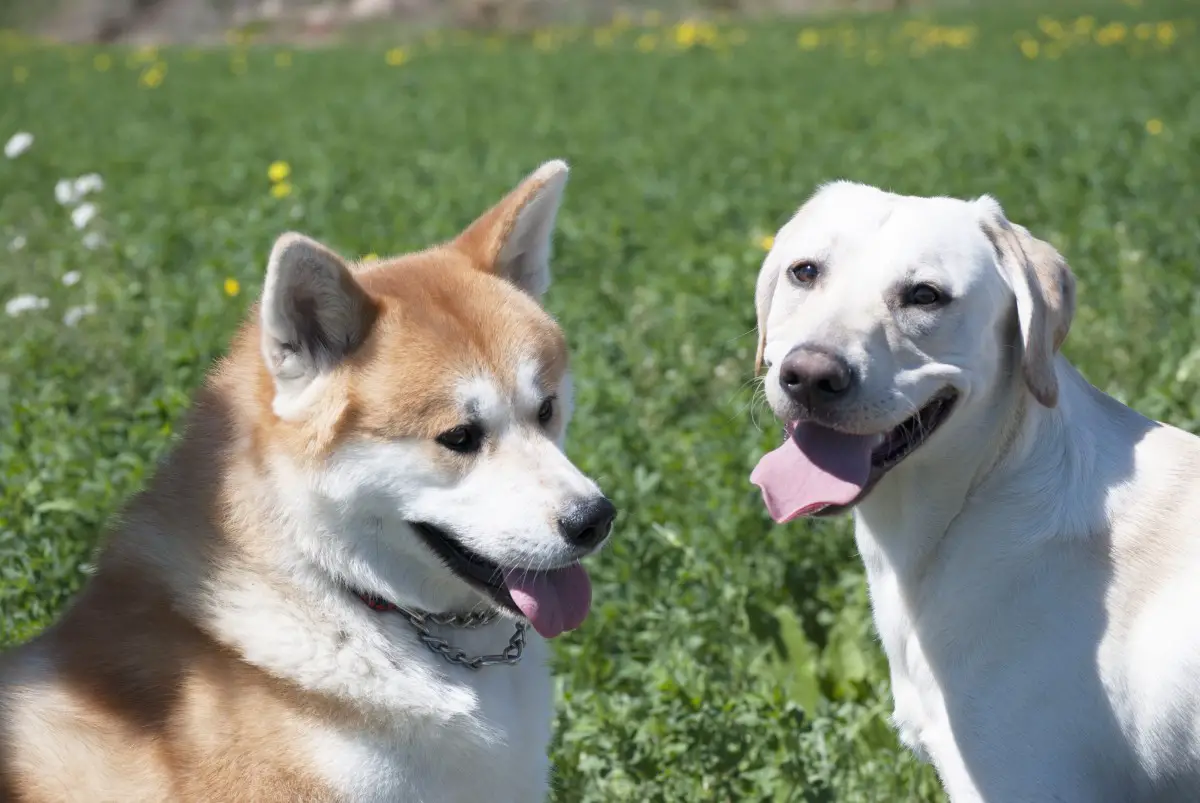
Akitas are known for their loyalty and protective nature, but these traits come with challenges. This breed is independent and can be aloof, requiring early and consistent socialization to prevent aggressive tendencies. They are not always friendly with other animals, so careful introductions are essential. Training an Akita can be challenging due to their stubborn nature, requiring a confident and experienced owner to guide them.
Their dense double coat sheds heavily, especially during seasonal changes, so regular grooming is a must. While they don’t require as much exercise as some high-energy breeds, Akitas still need daily walks and mental stimulation. This breed also has a strong prey drive, so a secure yard is necessary to prevent them from wandering off. Akitas thrive on companionship and can become destructive if left alone for long periods. If you can handle their unique needs, an Akita can be a devoted and protective family member.
11. Beagle

Beagles are charming and curious dogs, but they come with their own set of challenges. Known for their strong sense of smell, Beagles are prone to following their noses, which means they require a securely fenced yard. Their independent nature can make training a challenge, requiring patience and consistency. Beagles are social animals and don’t do well when left alone, often leading to separation anxiety.
Regular exercise is essential to keep a Beagle happy and healthy, as they are prone to obesity without it. Grooming is relatively simple, but their floppy ears need regular cleaning to prevent infections. They are notorious for being food-driven, so maintaining a balanced diet and monitoring their weight is crucial. Beagles require a lot of attention and stimulation to prevent them from becoming bored and destructive. If you can meet these demands, a Beagle can be a loyal and entertaining companion.
12. Yorkshire Terrier
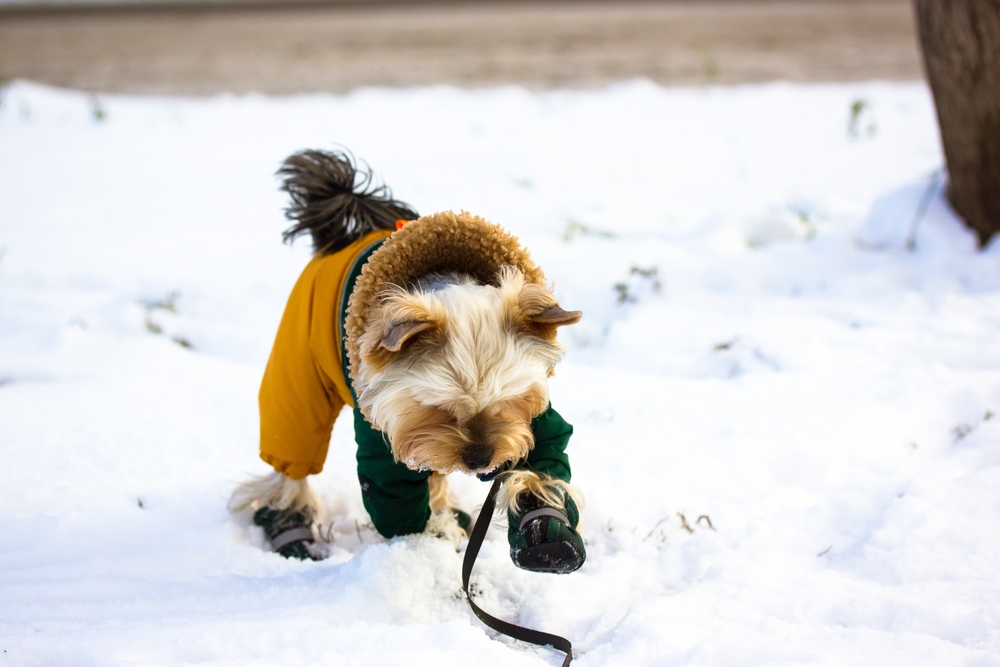
Yorkshire Terriers may be small, but they have big personalities and equally big maintenance needs. Their long, silky coats require regular grooming to keep them looking their best and to prevent mats and tangles. Yorkies are also prone to dental issues, so regular teeth brushing and veterinary dental care are essential. While they don’t require a lot of exercise, they do need mental stimulation and training to keep them well-behaved.
Socialization is crucial for Yorkies, as they can become territorial and overly protective if not properly socialized. Despite their small size, they have a strong prey drive and need to be monitored around other small animals. They are also prone to separation anxiety, so they thrive in homes where someone is around most of the time. Yorkies are known for their vocal nature, which can be managed with training but may take time. If you’re ready to meet their grooming and social needs, a Yorkshire Terrier can be a delightful companion.
13. Saint Bernard
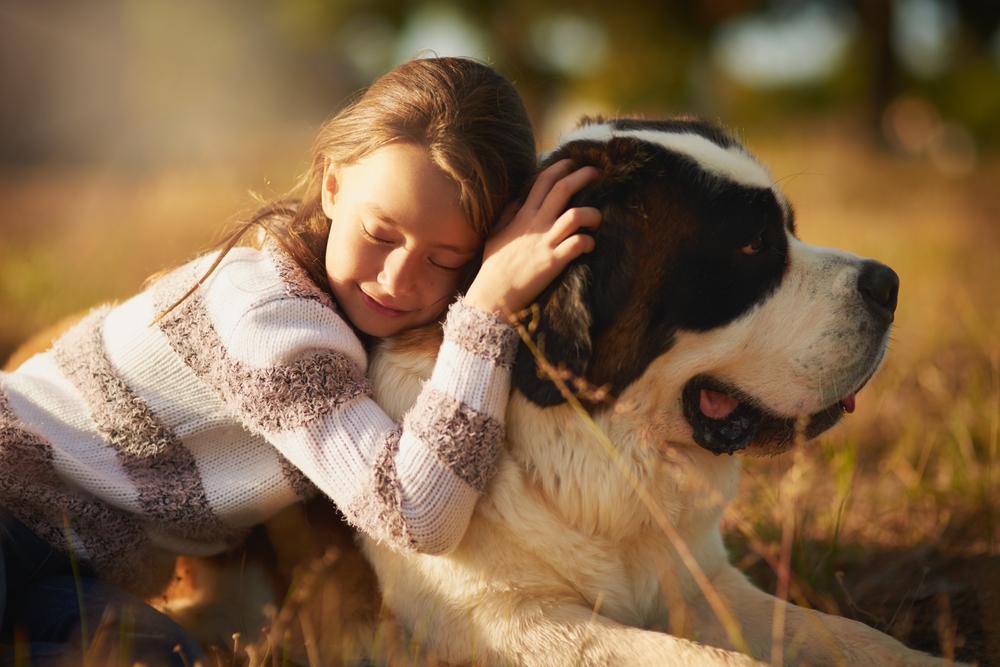
Saint Bernards are gentle giants with a loving nature, but they come with their own set of high-maintenance requirements. Their massive size means they need a lot of space and can be costly to care for, from food to veterinary bills. Their thick coat requires regular grooming to prevent mats and tangles, especially during shedding season. Saint Bernards are also prone to health issues such as hip dysplasia and heart problems, requiring regular vet check-ups.
Exercise is essential to keep them healthy, but their joints are prone to injury, so activities should be gentle and controlled. Training is crucial to manage their size and strength, especially around children and other animals. Despite their large size, they are social animals and thrive on human interaction. Saint Bernards are not suited for hot climates due to their thick coat, and can easily overheat. If you’re ready for the commitment, a Saint Bernard can be a loving and loyal family member.
14. Cocker Spaniel
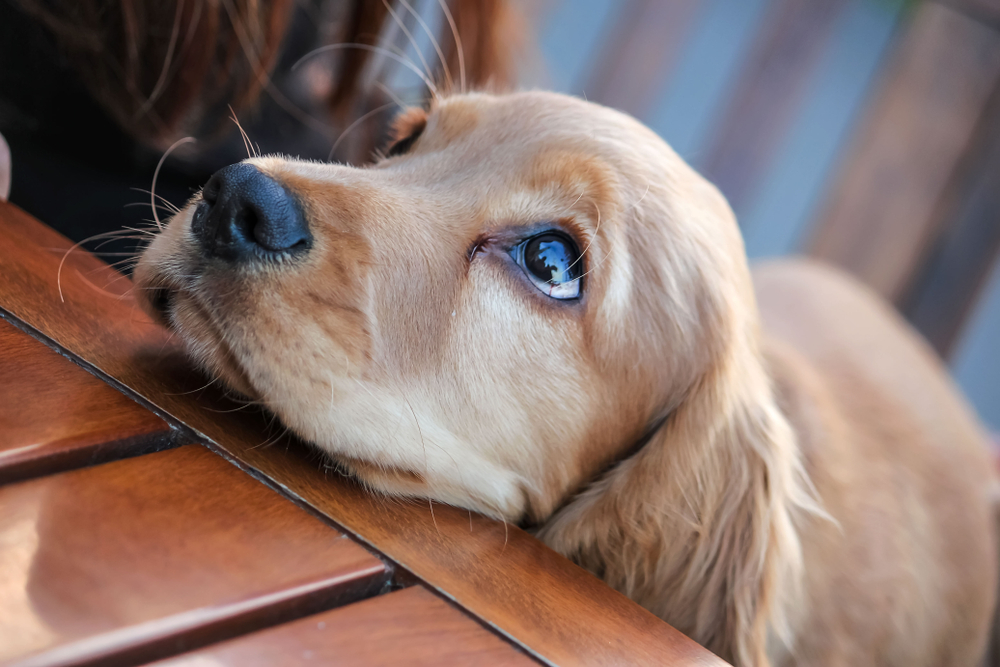
Cocker Spaniels are known for their beautiful coats and friendly nature, but they require significant grooming and care. Their long, flowing coats need regular brushing to prevent mats and tangles, as well as frequent trips to the groomer. Cocker Spaniels are also prone to ear infections due to their floppy ears, requiring regular cleaning and attention. They are active dogs and need regular exercise to prevent obesity and keep them healthy.
Training is essential for Cocker Spaniels, as they can be stubborn and require consistent guidance. Socialization is crucial to prevent them from becoming shy or overly protective. They are prone to separation anxiety and need a home where they can be part of the family. Cocker Spaniels thrive on companionship and do best in homes where someone is around most of the time. If you’re ready to meet their grooming and social needs, a Cocker Spaniel can be a loving and loyal companion.
